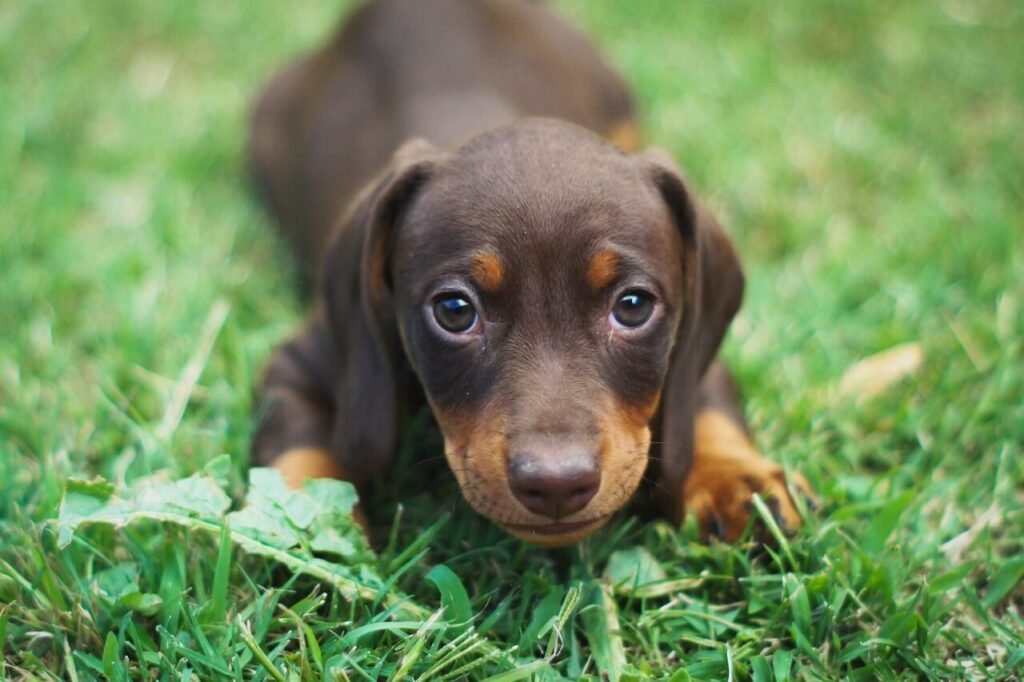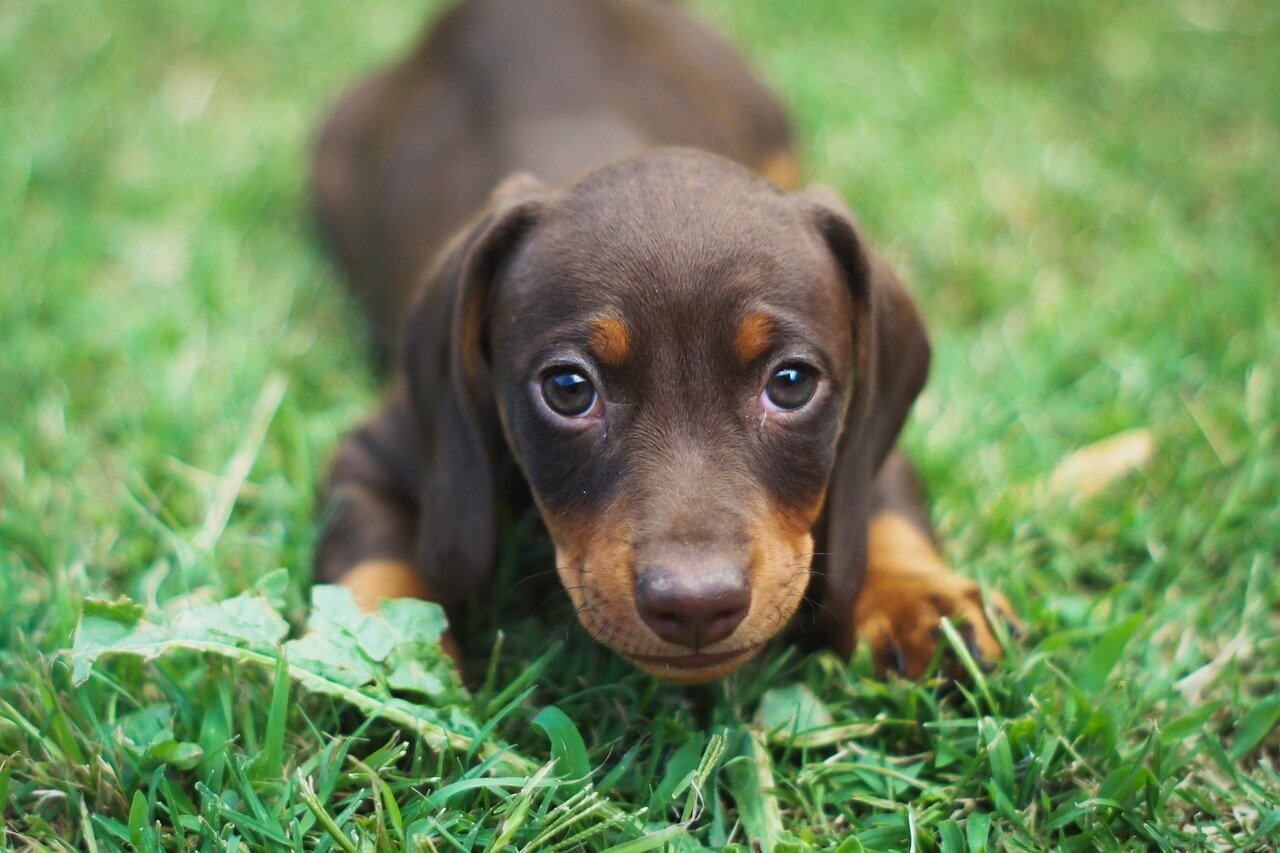Why Is My Dog Licking the Air? Decoding This Puzzling Behavior
Dogs are known for their quirky behaviors, and while many of them are adorable or amusing, some can leave us scratching our heads. One such behavior is when your dog starts licking the air. At first glance, it might seem harmless, but if you’ve noticed this happening frequently, you may be wondering what’s going on. Is it a sign of something serious, or just another one of those odd canine habits? In this blog post, we’ll dive into the reasons behind this peculiar behavior, explore potential causes, and provide practical advice to help you better understand your furry friend.
Common Reasons Why Dogs Lick the Air
If you’ve caught your dog licking the air, don’t panic just yet. There are several common explanations for this behavior, ranging from completely normal to potentially concerning. Below, we outline some of the most frequent reasons why dogs engage in this activity.
Oral Health Issues
Many dogs lick the air when they’re experiencing discomfort in their mouth. This could include gum disease, toothaches, or even something stuck between their teeth.Nausea or Digestive Problems
Air licking can sometimes indicate an upset stomach or nausea. Dogs may use this behavior as a way to cope with gastrointestinal discomfort.Anxiety or Stress
Just like humans, dogs have ways of self-soothing. Air licking might be a repetitive behavior triggered by anxiety or stress.Sensory Exploration
Dogs rely heavily on their sense of smell and taste to explore the world. Sometimes, they might lick the air to investigate scents or flavors lingering in their environment.Compulsive Behavior
In rare cases, excessive air licking could be a sign of a compulsive disorder, especially if it happens repeatedly and without an obvious trigger.
Understanding these possible causes can help you determine whether your dog’s air licking is harmless or warrants further investigation.
When Should You Be Concerned About Air Licking?
While occasional air licking isn’t usually a cause for alarm, there are certain red flags that suggest the behavior might be linked to a more serious issue. Here’s what to look out for:
Frequency and Duration
If your dog licks the air constantly throughout the day, it could indicate an underlying problem that needs attention.Accompanying Symptoms
Pay attention to other symptoms like vomiting, diarrhea, drooling excessively, or changes in appetite, which could point to medical issues.Behavioral Changes
Notice if your dog seems unusually restless, withdrawn, or anxious alongside the air licking. These signs often accompany health or emotional problems.Physical Discomfort
Check for visible signs of pain, such as pawing at the mouth, difficulty eating, or swelling around the face or jaw area.Environmental Triggers
Consider whether the behavior occurs only in specific situations, such as during car rides, thunderstorms, or visits to the vet.
By keeping an eye on these factors, you’ll be better equipped to decide whether a trip to the veterinarian is necessary.
Check this guide 👉Why Does My Dog Pee on My Bed? Best 7 Expert Tips!
Check this guide 👉Why Do Dogs Lick Their Butts? Best 7 Behavior Tips!
Check this guide 👉Why Is My Older Dog Drinking So Much Water? Best 7 Tips!

Signs It’s Normal Behavior | Signs It Could Be Serious |
|---|---|
Occasional and brief episodes | Frequent and prolonged licking |
Happens during playtime | Accompanied by vomiting or lethargy |
No other unusual symptoms | Visible signs of oral pain or injury |
Triggered by curiosity | Linked to stressful situations consistently |
Stops on its own | Persists despite distractions or interventions |
How to Address Air Licking in Your Dog
Once you’ve identified the possible reasons behind your dog’s air licking, the next step is addressing the behavior. Depending on the root cause, here are some strategies you can try:
Visit the Vet
Schedule a check-up to rule out any medical conditions, especially if the behavior is new or worsening.Improve Oral Hygiene
Brush your dog’s teeth regularly and provide dental chews to maintain good oral health.Reduce Stressors
Identify and minimize sources of anxiety, such as loud noises or unfamiliar environments.Provide Mental Stimulation
Engage your dog with toys, puzzles, or training sessions to redirect their focus and energy.Monitor Diet
Ensure your dog’s food is easy to digest and free from allergens that might irritate their system.
With patience and consistency, these steps can help curb unnecessary air licking and improve your dog’s overall well-being.
Preventing Excessive Air Licking in the Future
Prevention is always better than cure, and taking proactive measures can reduce the likelihood of your dog developing this habit. Here are some tips to keep in mind:
Establish a Routine
Dogs thrive on structure, so maintaining a consistent daily schedule can reduce stress-related behaviors.Encourage Exercise
Regular physical activity helps burn off excess energy and keeps your dog mentally balanced.Socialize Your Dog
Expose your dog to different people, animals, and environments to build confidence and resilience.Use Positive Reinforcement
Reward calm and appropriate behaviors to reinforce positive habits over time.Stay Observant
Keep track of your dog’s actions and note any patterns that emerge, allowing you to address issues early.
By implementing these preventive measures, you can create a happy, healthy environment for your dog while minimizing unwanted behaviors.
Environmental Factors That May Trigger Air Licking
While many dogs lick the air due to internal factors, their surroundings can also play a significant role. Certain environmental triggers might cause this behavior, especially in sensitive or reactive dogs. Understanding these influences can help you create a more calming atmosphere for your pet.
Loud Noises
Thunderstorms, fireworks, or construction sounds can overwhelm dogs and lead to stress-related behaviors like air licking.Unfamiliar Scents
Strong odors from cleaning products, perfumes, or even new furniture may prompt dogs to investigate by licking the air.Crowded Spaces
Being in busy or chaotic environments, such as crowded parks or vet waiting rooms, can make some dogs feel uneasy.Changes in Routine
Moving homes, rearranging furniture, or introducing new family members can disrupt a dog’s sense of security.Weather Conditions
Extreme heat, cold, or humidity might affect a dog’s comfort level and trigger unusual behaviors.
By identifying and minimizing these environmental stressors, you can help reduce episodes of air licking and create a more peaceful space for your dog.
Nutritional Considerations Linked to Air Licking
Diet plays a crucial role in your dog’s overall health, and certain nutritional imbalances can manifest in unexpected ways, including air licking. Ensuring your dog receives a balanced diet is essential for preventing this behavior.
Food Allergies
Some dogs develop allergies to specific ingredients, which can cause itching, digestive issues, and air licking.Low-Quality Ingredients
Cheap fillers or artificial additives in dog food may irritate the stomach and lead to discomfort.Inadequate Hydration
Dehydration can sometimes result in dry mouth or nausea, prompting dogs to lick the air.Overfeeding Treats
Too many snacks or table scraps can upset your dog’s digestion and contribute to unwanted behaviors.Sudden Diet Changes
Switching foods abruptly without a gradual transition can shock your dog’s system and cause gastrointestinal distress.
Providing high-quality, nutritious meals tailored to your dog’s needs can go a long way in addressing potential dietary causes of air licking.
Training Techniques to Redirect Air Licking
If your dog’s air licking is driven by boredom, anxiety, or habit, training can be an effective way to redirect their focus. Positive reinforcement techniques can encourage healthier behaviors while discouraging excessive licking.
Teach Alternative Commands
Train your dog to perform simple actions like “sit” or “stay” whenever they start licking the air.Use Distraction Tools
Provide interactive toys or puzzles to engage your dog’s mind and divert their attention.Reward Calm Behavior
Praise and reward your dog when they remain calm and refrain from licking the air.Practice Desensitization
Gradually expose your dog to triggers that cause air licking in a controlled manner to reduce their sensitivity.Incorporate Physical Activity
Regular walks, fetch sessions, or agility training can help release pent-up energy and reduce compulsive behaviors.
With patience and consistency, these training strategies can help reshape your dog’s habits and promote a more balanced lifestyle.
FAQ
Is air licking always a bad sign?
Not necessarily. Occasional air licking can be normal, but frequent or obsessive licking may indicate a problem.
Can diet affect my dog’s air licking?
Yes, certain foods or dietary imbalances can lead to digestive issues, which might trigger air licking.
Should I punish my dog for licking the air?
No, punishment is not effective and may increase anxiety. Instead, focus on identifying and addressing the underlying cause.
How do I know if my dog has a compulsive disorder?
Look for repetitive behaviors that interfere with daily life and persist despite attempts to distract your dog.
What should I do if my dog won’t stop licking the air?
Consult your veterinarian to rule out medical issues and discuss potential treatment options.
Final Thoughts: Understanding and Supporting Your Dog
Air licking might seem like a small quirk, but it can reveal important insights about your dog’s health and emotions. By staying attentive to their needs and seeking professional guidance when necessary, you can ensure your furry companion remains happy and healthy. Remember, every dog is unique, so take the time to observe and understand what makes yours tick. With love, care, and a little detective work, you’ll strengthen the bond you share and enjoy many joyful years together.
Cat Anaphylactic Shock Treatment Costs: Best 7 Expert Tips! – Learn about costs, treatments, and financial aid options to save your cat’s life.
Exocrine Pancreatic Insufficiency in Cats: Best 7 Tips! – Learn to spot symptoms, manage EPI effectively, and improve your cat’s quality of life with expert advice.
Cost of Dog Anaphylactic Shock Treatment: Best 7 Tips! – Learn about emergency costs, financial planning, and ways to manage expenses for your dog’s care.
Exocrine Pancreatic Insufficiency in Dogs: Best 7 Tips! – Learn to spot symptoms, manage EPI effectively, and improve your dog’s quality of life with expert guidance.





